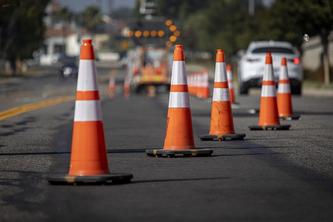
New virtual engagement opportunities are proving popular with University of Minnesota alumni. More than 5,500 participants — in 45 states and 15 countries — used webinars from the U’s Alumni Association (UMAA) during the last year. This and other efforts were highlighted by UMAA President and CEO Lisa Lewis in her annual report to the Board of Regents at its meeting today.
“Our alumni want online access to University information and resources, career and networking services, life learning chances and opportunity to attend events with fellow alums,” said Lewis. “Through our webinar series, new e-communications approaches, events and more, we are ensuring alumni stay engaged with the U, making it even stronger.”
In June, UMAA launched a collection of talks given by U of M faculty on a variety of topics. Known as ‘Gold Mind,’ more than 90 talks are available 24/7 for alumni and new content is added regularly.
Additionally, Lewis reported:
- More than 200,000 alumni received either newsletters or event listings each month;
- 43 percent of University alumni engaged with the U during the last year; and
- Alumni helped recruit new students across the U.S., while UMAA increased its presence internationally.
U alumni are key contributors to the state’s economy in a wide variety of fields, including business, science and engineering, the arts and entertainment and health care. According to a 2011 economic impact report, U alumni have started 10,000 plus companies in Minnesota, employing 500,000 people and generating revenue of $100 billion.
Moving forward, the UMAA will focus on young alumni relations, expanded opportunities for career services and networking and increased corporate partnerships, among other priorities.
Athletic accolades
Continued achievement in the classroom and multiple national championships highlighted 2014-15 for Gopher student-athletes, according to Athletics Director Norwood Teague in his annual report to the Board of Regents.
For the second year in a row, the U of M Twin Cities ranks first among public institutions with the highest percentage of teams winning Academic Progress Report (APR) Awards. The average cumulative grade point average for Gopher student-athletes is 3.27.
In competition, the Gophers women’s hockey team took home its sixth national championship. Three individual student-athletes won national titles, too – Kierra Smith (200 breaststroke), Yu Zhou (3 meter diving) and Luca Wieland (heptathlon). Four teams went to NCAA tournaments, three captured Big Ten championships and the football team played in its first New Year’s Day bowl game since 1962.
Combined, the Gophers finished 26th nationally and fifth in the Big Ten in the Learfield Director’s Cup standings, the measure of the success of an entire athletics program.
The Board also:
- reviewed the intricacies of Title IX legislation as it relates to college athletics. Deputy General Counsel Tracy Smith, along with Athletic Director Teague, Director of Equal Opportunity and Affirmative Action Kimberly Hewitt and Deputy Athletics Director Beth Goetz outlined many aspects of the federal Title IX law. The group explained various ways the University lives out its commitment to compliance and providing equity for all Gopher student-athletes.
- discussed long-term plans for the Twin Cities campus, specifically focused on student housing and Academic Health Center (AHC) needs. Vice President for University Services Pamela Wheelock provided an overview of the University’s approach to long-range planning. Dean of the Medical School and Vice President for Health Sciences Brooks Jackson and Director of Housing and Residential Life Laurie McLaughlin also reported on planning for their respective areas. The report concluded with highlights of the University’s long term vision plans, including: decommissioning and removing affected structures based on site location and changed facilities demands; thoughtfully aligning functional space for key programs and students, faculty and staff; designing and developing new or renovated student housing as existing facilities reach end of life; and more intentional engagement around development opportunities on campus edges.
Read President Eric Kaler’s report to the board here.
The Regents will hold their annual planning retreat through Friday, July 10. The Board will meet again Sept. 10 - 11.
- Categories:
- Agriculture and Environment





